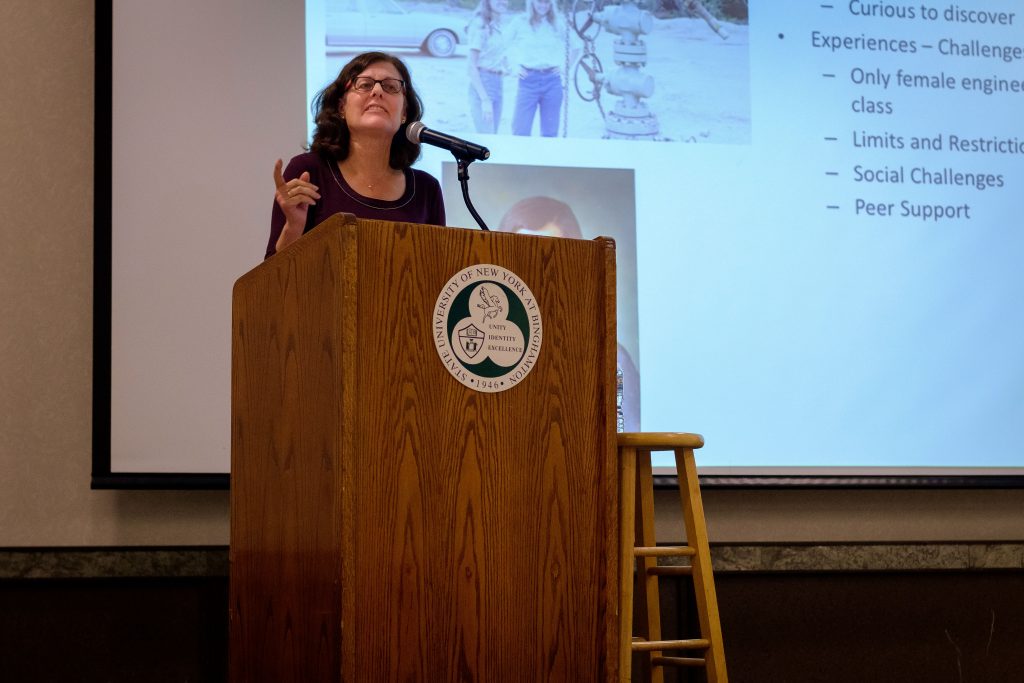
As a former petroleum engineer for Exxon Mobil Corp., Hallador Energy Company and Lockheed Martin Corp., Brooke Eiche recognizes that gender equality still has a long way to go in the traditionally male-dominated field of engineering.
On Thursday night, Eiche gave a lecture on her experiences as a woman engineer in an event hosted by the Society of Women Engineers (SWE). She also discussed her experiences with sexism while pursuing a master’s degree in engineering at Stanford University and her experience as a woman in the engineering industry.
Eiche said she realized that women in her industry constantly needed to be at least as competent, if not more so, than their male colleagues. In her presentation, Eiche named several women who broke barriers in science and technology, including Grace Hopper and Lillian Moller Gilbreth, who helped open the field of engineering to a wider group of women.
In an email, Eiche wrote that she hoped that she could better help prepare women who are pursuing a career in a male-dominated field.
“I hope to inspire confidence by providing awareness and strategies from my experiences,” Eiche wrote. “Knowing these obstacles before you experience them allows one to prepare for new and possibly frustrating situations.”
Only 5.8 percent of engineers in the United States were women when Eiche entered the field in 1981, according to the Congressional Joint Economic Committee. That figure had increased to 14 percent by 2012. The current male-to-female ratio in the Watson School of Engineering is 79.7 percent to 20.2 percent, according to the school’s website. Eiche, who was a corporate counselor for SWE, wrote that although gender inequities have improved since the start of her career in the 1980s, women still face challenges in the workplace.
“One obstacle that persists is being listened to,” Eiche wrote. “Men may interrupt and speak over you in meetings. If someone repeats exactly what you said earlier, and people agree, then call them out. Say, ‘Thank you for agreeing with me.’”
Sally Bishop, the secretary of SWE and a junior majoring in mechanical engineering, wrote in an email that the event was informative for both men and women in any workplace.
“Women need to know how to deal with potential discriminatory treatments in the workplace, subtle or not, and men need to know how to identify what could potentially cause discriminatory treatment and speak up for those who don’t have a voice,” Bishop wrote.
Cara Jozefowski, a member of the SWE and a senior majoring in electrical engineering, said that Eiche did a good job turning her experiences into advice.
“I think events like this are important because young people need to learn from people who have been in their shoes before,” Jozefowski said. “Getting advice from experienced professionals who know the ropes is crucial for being successful.”
Eiche advised the students in attendence to do excellent work, build up skills, impress someone in a higher position and have that person sponsor mobility. She added that among women, support and encouragement are needed to break through obstacles and inequalities.
“Drive forward when challenged,” Eiche wrote.


